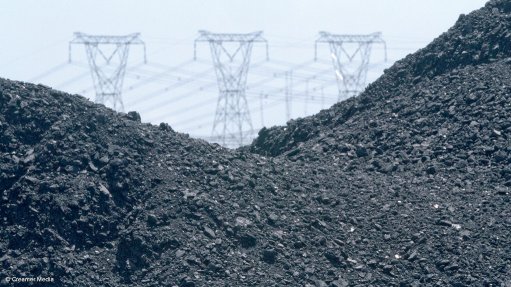
Photo by: Duane Daws
CAPE TOWN (miningweekly.com) – A World Bank report released at the Mining Indaba in Cape Town on Monday has called on mining companies to work more closely with electricity utilities in sub-Saharan Africa to meet their growing energy demands.
The report finds that the mining sector’s demand for power in sub-Saharan Africa is likely to triple between 2000 and 2020 to more than 23 000 MW. This could overtake nonmining demand for power in some countries.
The report, entitled ‘The Power of the Mine: A Transformative Opportunity for Sub-Saharan Africa’ advocates an integration of power and mining.
“Power–mining integration can bring substantial cost savings to mines, electrification to communities and investment opportunities to the private sector. But to be successful, we need governments, power utilities and mining companies to work together,” said World Bank VP for Africa Makhtar Diop.
Many mining companies were still opting to supply their own electricity with diesel generators rather than buying power from the grid. According to the report, another 10 GW of electricity will be added by 2020 to meet demand for power in the mining industry. This is projected to come from “self-supply” arrangements costing mining companies up to $33-billion.
An encouraging development is sparking across sub-Saharan Africa, with mines self-supplying and selling to the grid or serving as anchor customers for independent power providers (IPPs).
The report estimated that potential public–private partnership opportunities for new power generation from clean energy sources in mineral-rich countries – Guinea, Tanzania, Mozambique and Mauritanita, for instance – amounted to about $6-billion.
Randgold Resources CEO Mark Bristow told the World Bank group briefing at the Mining Indaba that it was vital to invest in African infrastructure.
“Africa is on the verge of real growth, but if we don’t have power, we can’t do it.”
He said the cost of power was immense – up to 30% of a company’s costs if it didn’t have access to grid power.
“To make things happen, we need a plan between governments and the private sector. We require each other as a partner to deliver. We want to create value for our shareholders, while governments want to grow their economies,” said Bristow.
He added that industry and governments had been at fault in the past and guilty of chasing after short-term gains.
“We are all worried about the next quarter, while governments worry about the next term of office.”
Bristow said that, during the boom times, the Zambian copper industry could easily have financed power stations. Instead investment had stalled. Other countries could also learn from the mistakes South Africa had made in adopting a short-term energy plan at the expense of long-term sustainability.
Sub-Saharan Africa suffers from a severe shortfall of energy, generating only 80 GW of power each year for 48 countries and a population of 1.1-billion people. Two-thirds of people in the region live entirely without electricity, while those with a power connection endure constant disruptions in supply.
While falling commodity prices could be a risk for investment in energy, the report suggests regulatory and financial solutions could help mitigate this.
The report encourages African governments to continue with power sector reforms and create an attractive operating environment for IPP’s, including renewable energy developers.